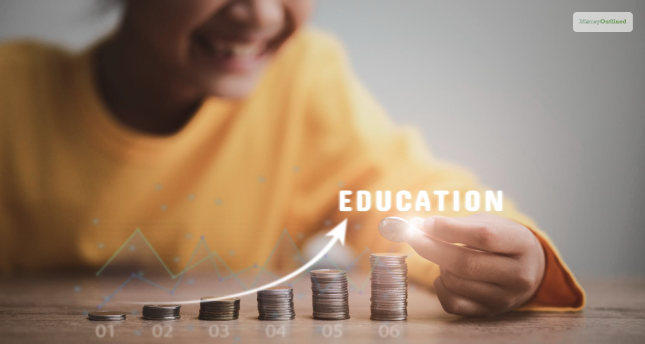Table Of Contents
- The Concept
- The Relationship Between Education And Economic Growth
- What Is The Necessity Of Investing In Human Capital?
- Investment in human capital can offer you benefits. What are those?
- How does education impact skills and wages?
- Job training and economic impact
- Cobweb model
- Major drawbacks
- How can education and training help achieve global competitiveness?
- Closing the skill gap
- In Summary
- The Concept
- The Relationship Between Education And Economic Growth
- What Is The Necessity Of Investing In Human Capital?
- Investment in human capital can offer you benefits. What are those?
- How does education impact skills and wages?
- Job training and economic impact
- Cobweb model
- Major drawbacks
- How can education and training help achieve global competitiveness?
- Closing the skill gap
- In Summary
How Does Education Affect Economic Development?
As we all know, education is a powerful tool for individual and country growth.
If you are trying to learn about the economic development of any state in India, you need only pay close attention to its educational opportunities.
When people hear about the connection between education and poverty, the first question that comes to mind is, “How does education impact the economy?”
The relationship between education and economic development may need to be revised. But a properly educated and developed workforce can help with the income stream in developed countries.
So yes, education and economic development are directly connected. The positive development of the economy also becomes obvious with the help of an educated workforce.
First, we will have to examine the relationship between education and economic development to understand and find the answer to the question, “How does education impact the economy?”
We will also explore the importance of trained human capital and its economic impact.
The Concept

Education is crucial in shaping a country’s development and economic performance. It also acts as a key driver for the growth and development of a specific country.
Moreover, education helps to promote productivity, leading to a higher human per capita. Various researchers have argued that seizing economic opportunities without education is almost impossible.
Educated and properly trained workers tend to execute tasks more efficiently. This further helps increase overall productivity and contributes to the economy.
Furthermore, labor productivity will also increase if the population can perform critical thinking or problem-solving.
A country can only benefit economically if it maximizes its skills and performs its tasks more efficiently, leading to great productivity. The rise of educated workers is directly proportional to the overall productivity and their economy.
The Relationship Between Education And Economic Growth

The relation between education and economic growth benefits any developing or underdeveloped country.
If I simplify it more, it depicts that education always helps individuals develop new skills and acquire knowledge about certain areas. But how does education impact the economy? Once they acquire the skills and knowledge, they can help enrich the talent pool, stimulating economic output.
Education can help you think! As a result, you develop critical thinking, problem-solving, and other cognitive skills.
Suppose a company has launched a new automated technology. A developed country with an educated workforce will easily train its workers in technology. This will position them to capitalize on such advancements, securing better economic growth.
This clearly states the relationship between education and economic development.
Secondly, education can also impact the economy through salary increases. If the salary increases in the labor market, the laborers will pay more taxes.
Education has a direct impact on salary increases. Higher salaries and high-income tax rates help secure better economic growth.
What Is The Necessity Of Investing In Human Capital?

Investment in human capital is considered an effort that people can use to acquire education and training in any specific field and gain experience from it.
The main aim of investing in human capital is similar to how firms invest in physical capital. Both of them result in increased productivity and a high-income rate.
If you have decided to invest in human capital, you pay for their schooling, adult training, and other formal education.
Investment in human capital can offer you benefits. What are those?
Researchers have shown that a high level of education can help increase income. In the US, the return rate of a college education program is 10%. On the other hand, countries with better literacy rates can also have societal benefits.
How does education impact the economy? Well, an educated population can contribute to improving healthcare and outcomes. On the other hand, education also helps reduce the overall crime rate.
In short, education and investment in human capital benefit any country to acquire high productivity and better economic growth. Various literacy programs can help produce benefits at all societal levels. Thus, countries need to emphasize education and invest in it.
Read Also: Educational Opportunities And Costs: Factoring In Education Expenses For Families
How does education impact skills and wages?

Considering the best timing of any economy, the data specifically shows the difference in earnings. Workers with higher education tend to earn more than those with less education.
According to the human capital theory, education plays a huge role in enhancing the skills of individuals. It also makes them productive to become eligible for a better workforce. So, the difference in wages shows a difference in overall productivity.
The workers who earn more are motivated to work more and become productive.
Education can be considered an accumulation of skills that help transform knowledge and skills into productivity. It also opens the way for great remuneration. So, wherever you complete your education, you are developing the skills that give you access to occupations that pay you a high salary.
In short, investing in proper education helps you enhance your skills and offers you opportunities to secure a high-paying job. Employees need to recognize the overall value of education in order to get a grip on high wages while increasing productivity.
Job training and economic impact

In any country, a successful economy can only operate if the workforce has the capability to operate in certain industries, which can help give the country a better competitive advantage.
Nations can help by incentivizing various training programs through tax breaks. The nation is to train skilled workers so nations can provide better facilities.
Overall, they also design various programs to help make the workers more skillful.
An economy can’t sell in all industries. Thus, it becomes a responsibility for the nation to focus on specific sectors and rapidly train them.
Cobweb model
If we look closely at the cobweb model, we can understand how effective it is for workers to learn new skills. The model not only indicates how the salary of workers who learn new skills fluctuates, but it also shows the impact on the total supply of workers.
The cobweb model states that learning new skills unlocks the opportunity to earn a high salary. However, there is a challenge. Workers engage in job training and learn new skills to obtain high-salary jobs, which also increases the supply of workers.
But, over time, an excessive supply of workers leads to low wages. The decrease in overall wage demotivates the workers, resulting in a decline in the overall worker supply.
This cycle continues; workers go through training again, and the wage scale.
Major drawbacks
Education does not always help secure high wages for all workers. In the US, discrimination and bias lead to wage gaps among workers.
According to research by the Economic Policy Institute, black workers often have issues getting the right kind of job based on their expertise. They also go through a wage gap, where the black men only get paid 71 cents for every $1 earned by a white man. Similarly, a black woman only earns 64 cents for every $1 salary of a white woman.
Despite having the scope of having proper access to training, black Americans are in a vulnerable state. They tend to have jobs like truck drivers or office clerks, which will be replaced by automation soon.
How can education and training help achieve global competitiveness?

Education always plays a pivotal role in raising productivity. It nurtures a creative brain and helps in solving critical problems. However, it is natural responsibility to provide necessary skills and knowledge to the workers.
While enhancing the productivity of the workforce, education and proper skills enhancement can also help increase competitiveness.
If you provide proper access to the right knowledge and skill development, the workers can easily evolve in the job market.
In addition to that, proper access to education fosters innovation and entrepreneurship. This results in better economic growth and creates opportunities that can further drive the nation.
Read Also: How To Grow A Successful Business?
Closing the skill gap
In any kind of economic state, closing a skill gap is always necessary to achieve the eocnomic growth as well as opportunities. This helps to make contributions for economic performance and distribute opportunity across the states.
The World Economic Forum led the Closing the Skills Gap projects with an aim to address all the current skill gaps. The forum worked on reshaping the future md provide training for the workers.
Education and training both can help in keeping the right pace in meeting demands in the labor market. The concept of reskilling and upskilling can be a major advantage for the workers to stay updated about the skills.
Reskilling and upskilling laborers can help in preparing workers for the 21st century jobs. The workers need to have basic digital literacy and the buildup expertise in various technological fields.
Moreover, employers need to stay attentive to identify issues related to workforce development. They can also employ technological advancements in hiring, training and retaining.
In Summary
Education is the ultimate key to a better quality of life and economic success. While gaining benefits for society, it also helps to increase both productivity and innovation.
For every nation, it is important to train and reskill their workers to improve their quality of working towards the society. Moreover, education promotes earning rate, employment while reducing overall poverty.
So, education isn?t something you can call an expense. It is more like an investment with great returns.











Leave A Comment